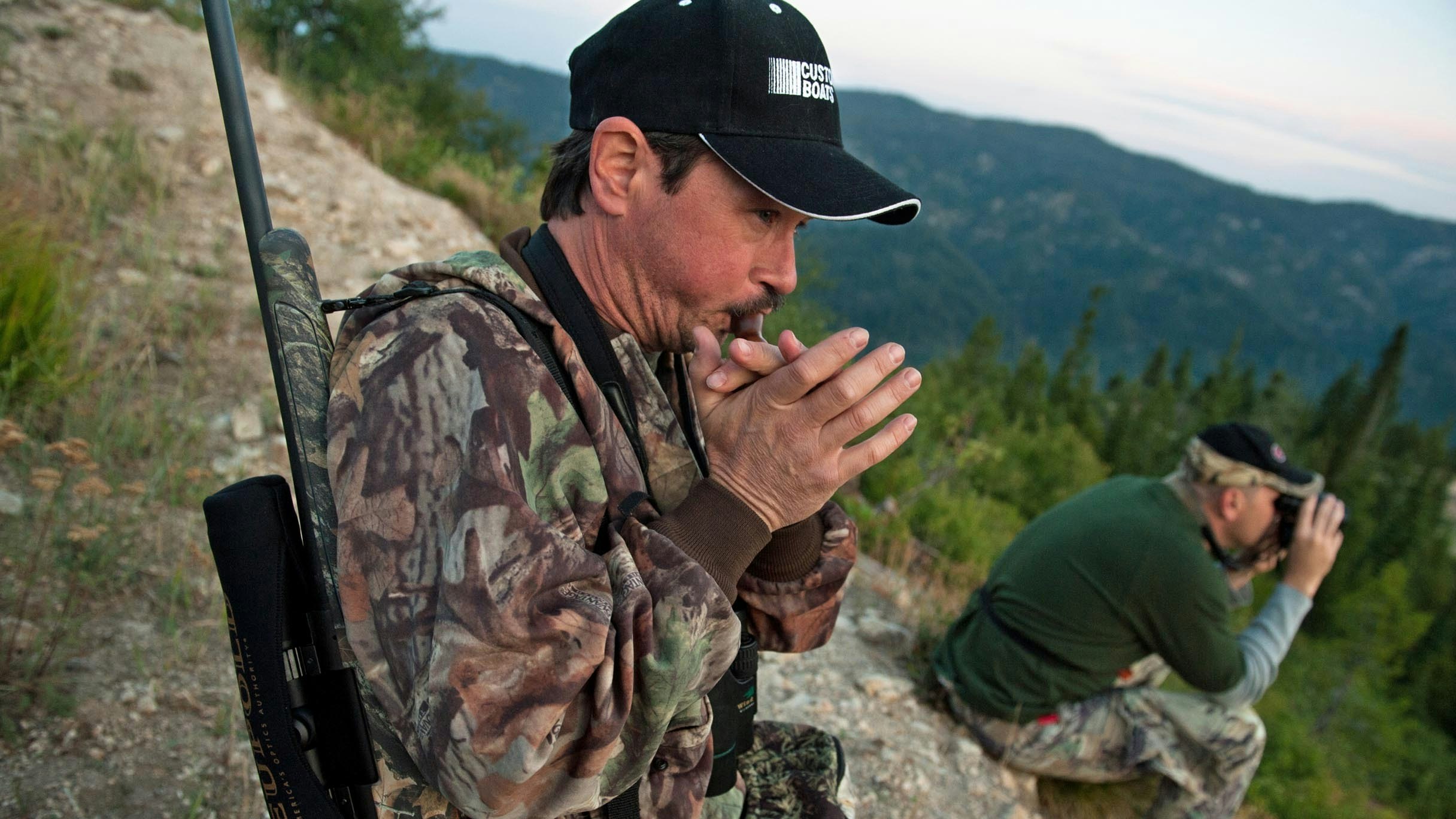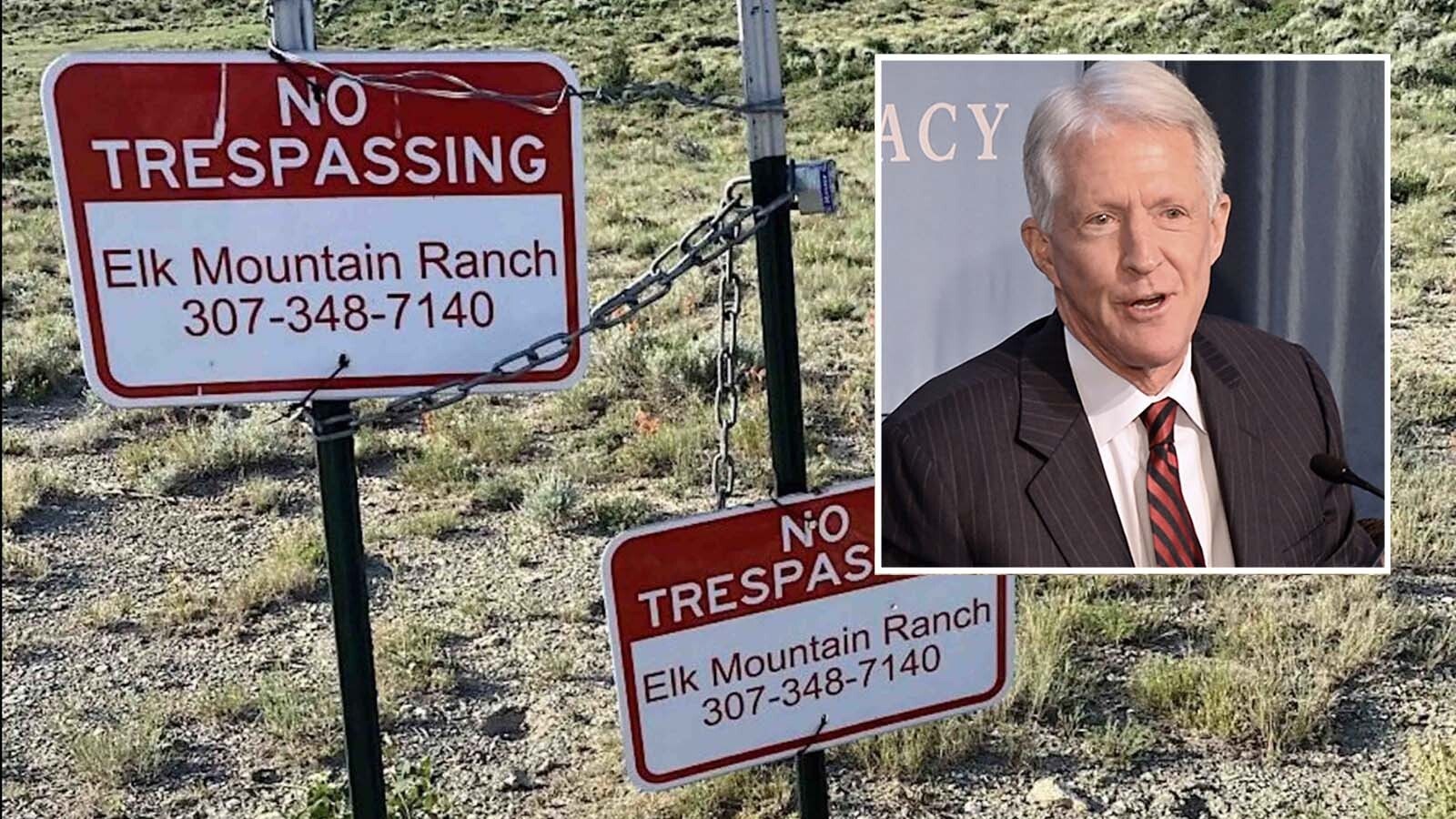With big game herds in some places diminished to starved carcasses littering the landscape, it’s best to avoid the temptation to start shooting more black bears and mountain lions, said an avid predator hunter.
“There are a lot of us who are extremely passionate about hunting large carnivores, and we want a sustainable population to continue to do so,” Joe Kondelis of Cody told members of the Wyoming Game and Fish Commission early Monday.
“If we get to going in the wrong direction on this, we could end up hurting the (black bear and mountain lion) populations too much, and they can take a long time to recover,” said Kondelis, who is president of the American Bear Foundation.
However, hunter Lane Wayment of Cokeville disagreed, saying that he’s seen abundant populations of predators in the Wyoming backcountry. He doesn’t think raising kill quotas on black bears and mountain lions would hurt those species.
“It’s not the predators in the West that are struggling,” he said. “It’s having some quality deer hunting that’s a struggle.”
Kondelis, Wayment and others made their comments during an online meeting of the Game and Fish Commission, which has the authority to set hunting seasons and tag quotas in Wyoming.
The commission voted to follow the recommendation of the Wyoming Game and Fish Department to continue gathering data and taking public comment over the summer, and perhaps recommend changing mountain lion and black bear quotas and hunting seasons in January 2024.
‘War On Predators’
This winter was hard on some of Wyoming’s most prized antelope and mule deer herds, such as the famed Wyoming Range deer herd.
In some areas, it’s feared that freezing and starvation killed as many as half the deer, and even more antelope.
As a result, the Game and Fish Commission ruled to significantly cut deer and antelope hunting tags in some areas.
And during the commission’s April meeting, some hunters and outfitters raised concerns over how predation from black bears and mountain lions might affect the already-devasted big game herds.
However, such concerns could be misplaced, Cindy Campbell, who lives south of Jackson, told the commission Monday.
“It’s absolutely brutal” what this year’s winter did to some deer, including herds near her home, Campbell said.
However, research has shown that hammering predators does little to benefit big game animals, she said.
“Killing more predators does not solve issues with more mortality in big game herds,” she said. “Waging war on predators is simply not the answer.”
Quota System Works
Game and Fish typically evaluates mountain lion and black bear hunting in Wyoming every three years, said Rick King, the agency’s chief game warden.
Kill quotas in some Wyoming mountain lion and bear hunt areas were already recently raised. So, the question now stands if they might be raised further in 2024.
In Wyoming, the number of mountain lions or black bears that hunters may kill in any particular area is set according to a mortality quota, particularly for female animals. Once the mortality quota is reached, hunting is shut down in that area, even if some hunters are left holding unfilled tags.
The quota system works well, particularly in protecting the population of breeding female mountain lions, said Luke Worthington, a member of the Wyoming Houndsmen Association.
“They usually breed only every couple of years. So, killing too many females will set them back, and they won’t recover quickly,” he said.
Hounds may be used to hunt mountain lions in Wyoming, but not black bears.
The three-year evaluation system has worked well, and Game and Fish has an excellent large carnivore division, said Jess Johnson, spokeswoman for the Wyoming Wildlife Federation.
So, it would be best to stick with findings of large carnivore biologists and not raise quotas simply in response to one bad winter for big game animals, she said.
The focus should be on “habitat,” particularly for mule deer, she said. Conserving and improving habitat will help deer recover more quickly than anything else.
Fat Cat
Bear hunter Dick Pedersen of Worland said he and other hunters in the Worland and Ten Sleep have seen plenty of bears.
Boars (adult male bears) might kill bear cubs, which could warrant longer spring bear hunting seasons there, he said.
“The boars do kill cubs. I think if the season stays open a little bit longer, we could kill more boars,” he said.
Wayment said the condition of a mountain lion he recently killed proved that predators are thriving.
“I made sure I left all the fat that was on it” when showing the carcass to a game warden, he said. “That thing was not struggling.”
Beware Public Perception
Kondelis said he’s worried about what overzealous predator hunting could do to Wyoming’s reputation, possibly opening the state up to more lawsuits from anti-hunting activists.
“We just beat a lawsuit to ban bear baiting,” he said. “I don’t want to give them (activists) any more reason to come at us.”
Things aren’t being rushed, and Game and Fish biologists and the public should have ample time to weigh in before any changes are made, commission member John Masterson said.
“This is not a ‘knee-jerk reaction,’ as I see it. It’s also not putting more blame on them (black bears and mountain lions) than they deserve,” he said. “I think it’s revisiting and considering updates to a proven management technique.”
Mark Heinz can be reached at Mark@CowboyStateDaily.com.





